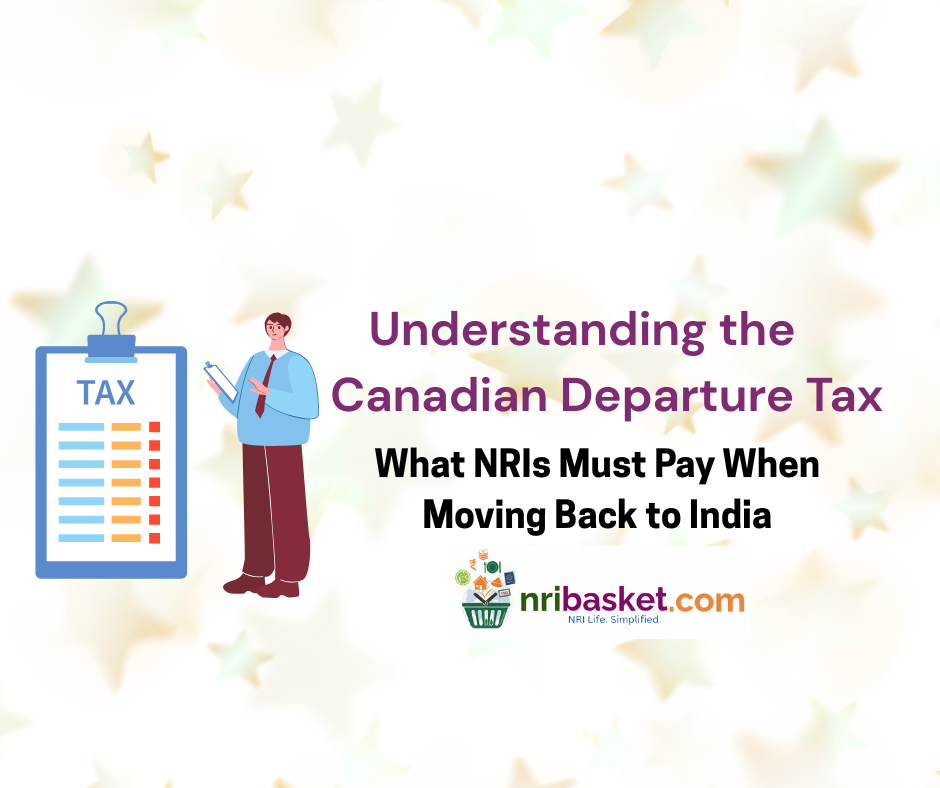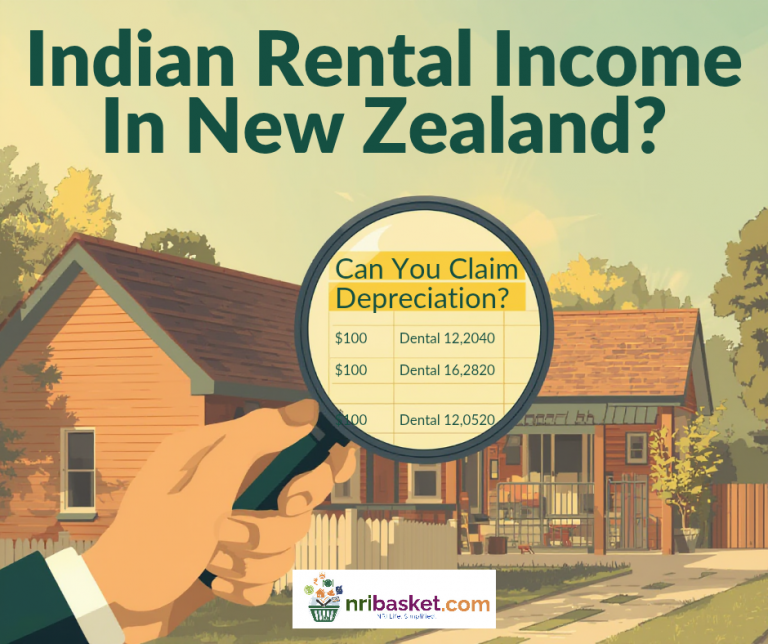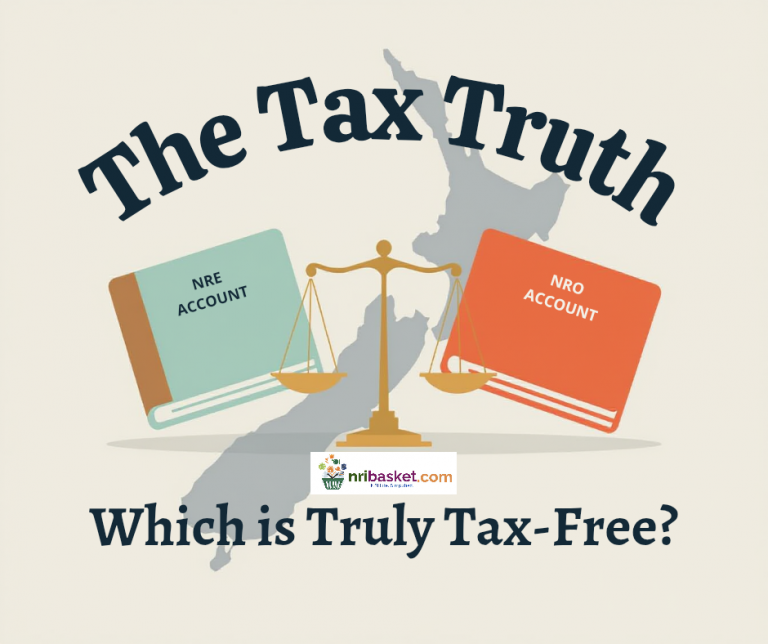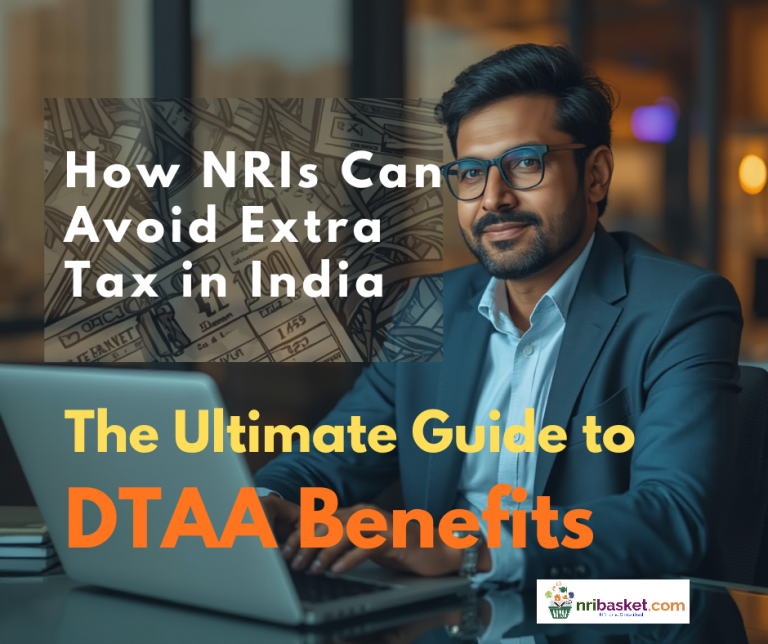
Understanding the Canadian Departure Tax
1. What is the Canadian Departure Tax?
Short Answer: It’s a tax applied when you permanently leave Canada and become a non-resident. Long Answer: The Canadian Departure Tax (also called “Exit Tax”) treats most of your assets as if they were sold at fair market value on the day you leave Canada. You must pay tax on any capital gains that result from this “deemed sale.”
2. Why does Canada charge a Departure Tax?
Short Answer: To tax the increase in value of your assets while you were a resident. Long Answer: Canada taxes residents on worldwide income. When you leave permanently, Canada wants to collect tax on any gains that occurred while you lived there, before you change your tax residency to another country like India.
3. Who needs to pay the Departure Tax?
Short Answer: Anyone who permanently leaves Canada and becomes a non-resident for tax purposes. Long Answer: If you cut your residential ties (home, spouse, dependents, bank accounts, driver’s license, etc.) and move abroad—such as returning to India—you are considered a “deemed non-resident” and may owe departure tax.
4. What does “deemed disposition” mean?
Short Answer: It means your assets are treated as if they were sold. Long Answer: Even though you don’t actually sell anything, the CRA assumes you sold your property at its current fair market value on the day you leave Canada, to calculate the potential capital gains for departure tax purposes.
5. What types of assets are subject to Departure Tax?
Short Answer: Stocks, mutual funds, real estate outside Canada, and some personal assets. Long Answer: Most capital property like shares, trusts, and certain investments are included. However, Canadian real estate, RRSPs, and pensions are not subject to departure tax—they are taxed later when withdrawn or sold.
6. Are RRSP or TFSA accounts taxed when I leave Canada?
Short Answer: RRSPs are not taxed on exit, but TFSAs lose their tax-free status. Long Answer: RRSPs remain deferred until withdrawn, but TFSAs stop being tax-free once you become non-resident. Any income earned after departure may be taxable in India depending on DTAA rules.
7. Is my Canadian home subject to Departure Tax?
Short Answer: Usually not, if it was your principal residence. Long Answer: If your home in Canada qualifies as a principal residence for all the years you owned it, you can claim the principal residence exemption to avoid paying departure tax on it.
8. How do I report Departure Tax to the CRA?
Short Answer: By filing your final tax return and Form T1243. Long Answer: You must file a “departure return” for the year you leave Canada. Include Form T1243 (Deemed Disposition of Property) and possibly Form T1161 if the value of your assets exceeds CAD $25,000.
9. What is Form T1161 used for?
Short Answer: To list all property owned when leaving Canada. Long Answer: The CRA requires you to report all assets worth over CAD $25,000 on Form T1161, even if no departure tax applies. Failure to file can result in penalties.
10. Is there any exemption threshold for Departure Tax?
Short Answer: Yes, if your assets are under CAD $25,000. Long Answer: If your total worldwide assets (excluding exempt property) are worth less than CAD $25,000 at the time of departure, you don’t need to file Form T1161 or pay departure tax.
11. Do I need to sell my Canadian assets to pay the tax?
Short Answer: No, it’s a paper-based gain. Long Answer: The tax is calculated on a deemed sale. You don’t actually sell your assets, but you may owe tax based on unrealized gains. You can choose to defer payment until the asset is actually sold by posting security with the CRA.
12. Can I defer the Departure Tax payment?
Short Answer: Yes, by filing Form T1244 and providing security. Long Answer: The CRA allows you to defer payment until you actually dispose of the property, as long as you provide acceptable security (like a bank guarantee or property lien).
13. Does Departure Tax apply to Indian citizens returning from Canada?
Short Answer: Yes, if you were a Canadian tax resident. Long Answer: If you are an Indian citizen who became a tax resident in Canada (for example, as a PR or work visa holder) and are now moving back permanently, you must still follow departure tax rules like any other Canadian resident.
14. Is there a tax treaty benefit between India and Canada?
Short Answer: Yes, through the India-Canada DTAA. Long Answer: The Double Taxation Avoidance Agreement ensures you don’t pay tax on the same income in both countries. However, the departure tax is a one-time capital gain event, usually not covered for full exemption.
15. How does CRA determine fair market value for assets?
Short Answer: Based on current market prices. Long Answer: For publicly traded assets, it’s the stock price on the day you leave. For private assets, you may need a professional valuation or appraiser report to estimate fair market value accurately.
16. What happens if I move back to Canada later?
Short Answer: You become a tax resident again. Long Answer: When you return, your cost base for capital gains resets to the fair market value on your return date. The CRA treats you as a new resident for future tax purposes.
17. Do I have to pay Departure Tax on my Canadian pension?
Short Answer: No, pensions are not subject to departure tax. Long Answer: CPP, OAS, and employer pensions are excluded from departure tax. They will be taxed later when you start receiving payments, possibly with withholding tax for non-residents.
18. How are mutual funds treated under Departure Tax?
Short Answer: They are deemed sold. Long Answer: Mutual fund units and ETFs are subject to deemed disposition at market value. You’ll owe tax on any capital gains since purchase.
19. What happens if I forget to report Departure Tax?
Short Answer: You may face penalties and interest. Long Answer: CRA can reassess your file, add penalties for late filing or omission, and charge interest on unpaid tax. Always file your departure return properly before leaving.
20. Can I use capital losses to reduce Departure Tax?
Short Answer: Yes. Long Answer: Capital losses from deemed disposition can be applied against your capital gains to reduce or offset departure tax liability.
21. How does the CRA know that I left Canada?
Short Answer: Through your final tax filing and residential ties. Long Answer: The CRA checks your mailing address, bank closure, home sale, and other indicators. You should inform the CRA directly when filing your last return as a resident.
22. Do I need to inform my financial institutions?
Short Answer: Yes, to update your tax residency. Long Answer: Banks and investment firms must know your non-resident status for proper withholding and reporting. Inform them before leaving to avoid compliance issues.
23. How do Indian tax authorities treat Departure Tax payments?
Short Answer: As capital gains paid abroad. Long Answer: You may claim foreign tax credit in India for the departure tax paid in Canada, depending on the India-Canada DTAA provisions.
24. Are cryptocurrencies included in Departure Tax?
Short Answer: Yes, they are capital assets. Long Answer: The CRA treats crypto as property, so any increase in value is taxed as a capital gain upon deemed disposition when you leave Canada.
25. Does the Departure Tax apply to Canadian citizens too?
Short Answer: Yes, if they stop being residents. Long Answer: Citizenship doesn’t matter. If you permanently leave and become a non-resident for tax purposes, you may owe departure tax like any other resident.
26. When is the Departure Tax due?
Short Answer: By your regular tax deadline. Long Answer: The tax is due with your final Canadian return for the year of departure, typically by April 30 of the following year.
27. Can I file my departure return online?
Short Answer: Yes, through NETFILE or paper return. Long Answer: If you’re still in Canada when filing, you can use NETFILE. After leaving, a paper return with the appropriate non-resident details is safer and recommended.
28. What if I only leave Canada temporarily?
Short Answer: No departure tax applies. Long Answer: If you keep significant residential ties (home, spouse, etc.) and plan to return, you’re considered a factual resident. Departure tax only applies to those leaving permanently.
29. Can I avoid paying Departure Tax legally?
Short Answer: You can reduce it, not avoid it. Long Answer: You can use tax planning tools like capital losses, RRSP contributions, or deferral options, but the tax itself cannot be avoided if you have appreciated assets.
30. What professional help should I seek before leaving Canada?
Short Answer: A tax advisor experienced in cross-border taxation. Long Answer: Before moving back to India, consult a CPA who understands both Canadian and Indian tax systems. They can help minimize departure tax, file the right forms, and ensure DTAA compliance.
Canadian departure tax for NRIs,Exit tax Canada returning to India ,Canada departure tax explained ,Canadian exit tax rules,CRA departure tax guide.




